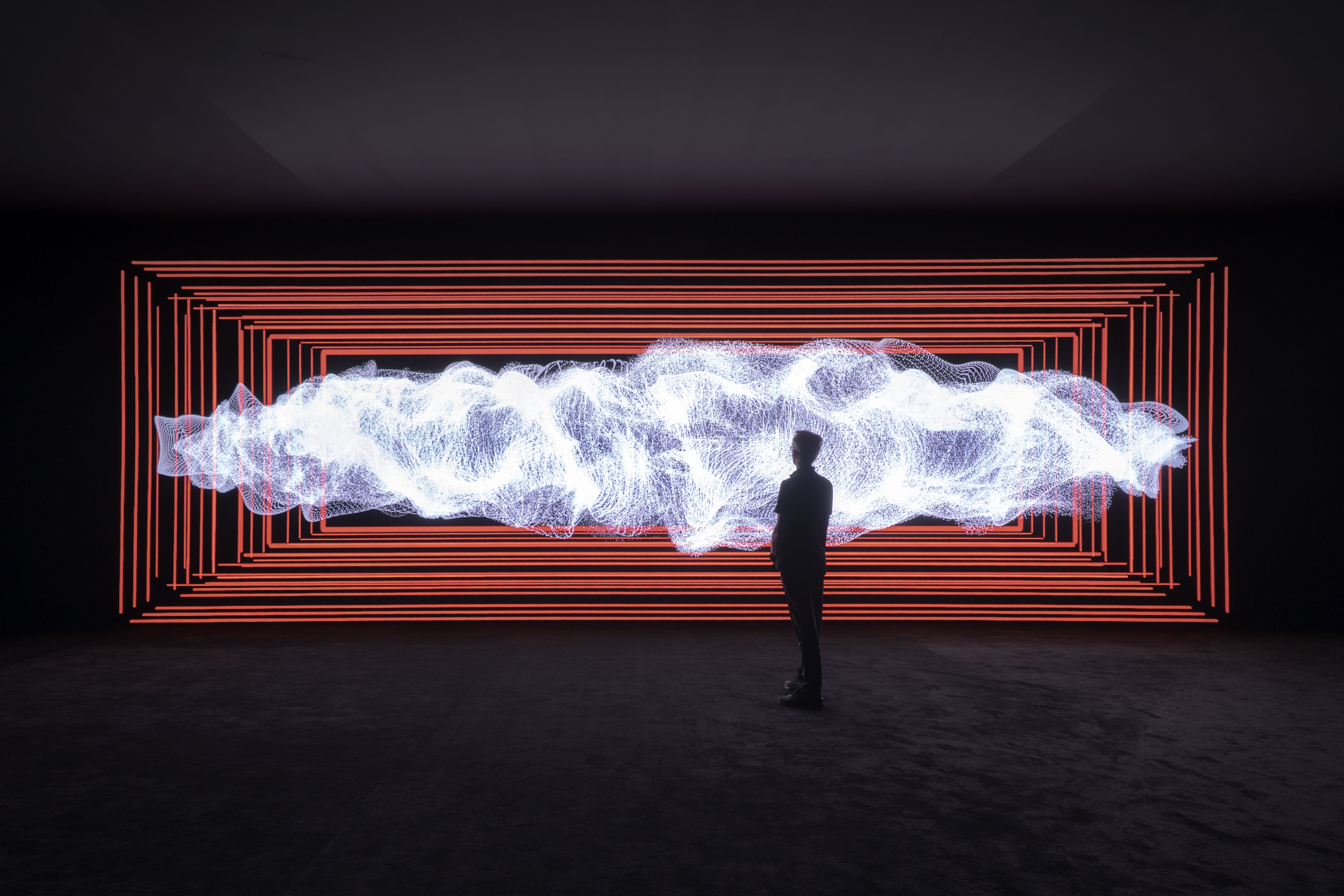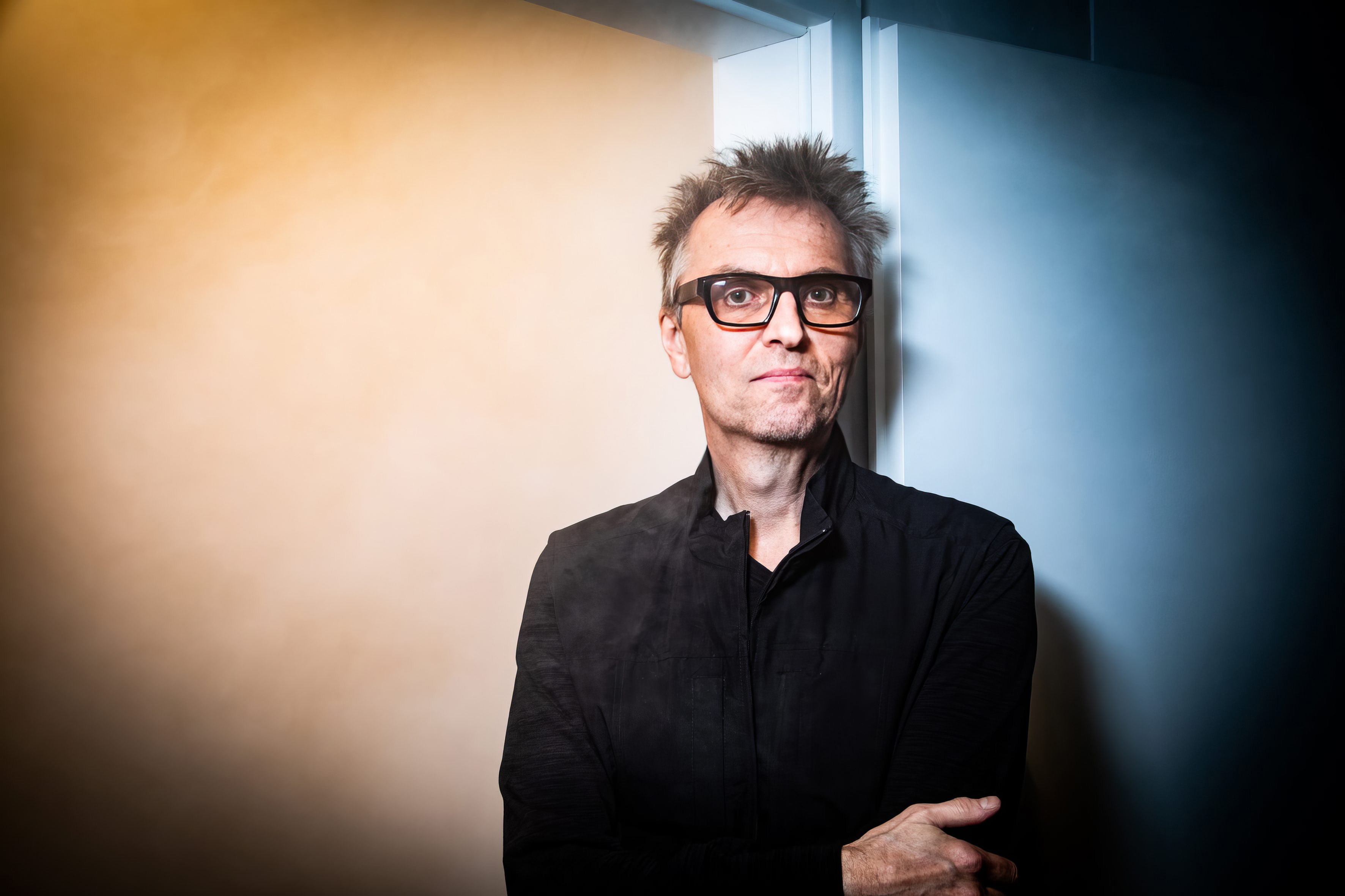
FLUX installation, 2025. Photo: Lorenzo Arrigoni
Kurt Hentschläger’s work is primarily audiovisual and spatial in nature. His approach is interdisciplinary, across fine arts, sound and live arts, and, at longer intervals, public art.
The psychological aspect of perception and consciousness is a long term focus. The concept of the Gesamtkunstwerk—the all-encompassing universal art form—fundamentally informs his process. Architecture, scale - the experience of space, inside or outside, as a fundamental in human existence, reads throughout his work.
His working process embraces ephemeral and experimental methods, both by choice and necessity, reflecting the fluid and unstable nature of contemporary / digital media itself. He is drawn to the unforeseeable, to the unintended consequences of entering unfamiliar territory, and to the risk of failure and crisis inherent in such processes. Crisis = drama = good.
His work led to research into the malleability of cognitive processes in the human brain: how humans perceive and digest / interpret the world they inhabit. Perception is profoundly informed by cultural background, education, imagination, live philosophy, emotional state - in short, individual identity.
Born 1960, he witnesssed the dramatic, technological makeover of the planet, the explosion in productivity and global industrial production through digital means. His recent video works reflect on that sea-change and today’s fluid concepts about nature.
Having worked with digital media for decades, he regards digital technology as an institutionalized infrastructure whose presence is non-negotiable. And so, like other cultural frameworks or institutions, it must be questioned.
As an artist, he continues creating emotionally resonant experiences—works that may initially appear strange, alien and disorienting, yet continue to engage audiences long after their encounters.

Photo: Martin Steffen
> Interference Strategies - The Encyclopedia of Media Arts, Volume 2,
Bloomsbury Publishing, 2025